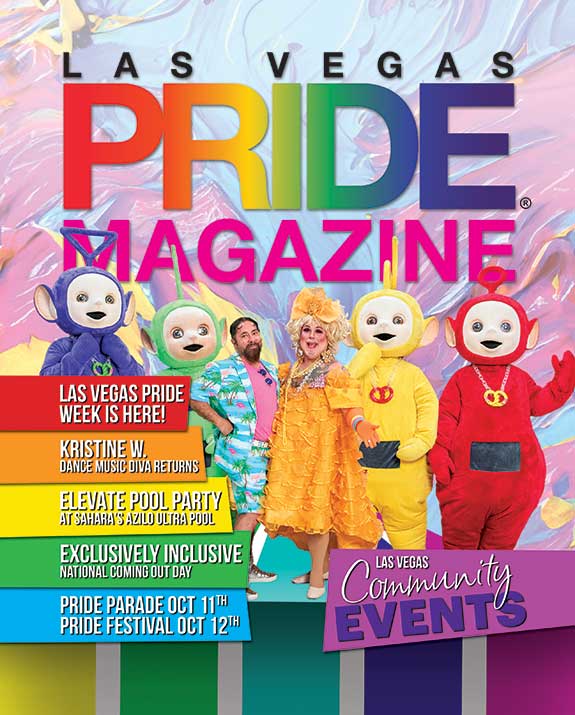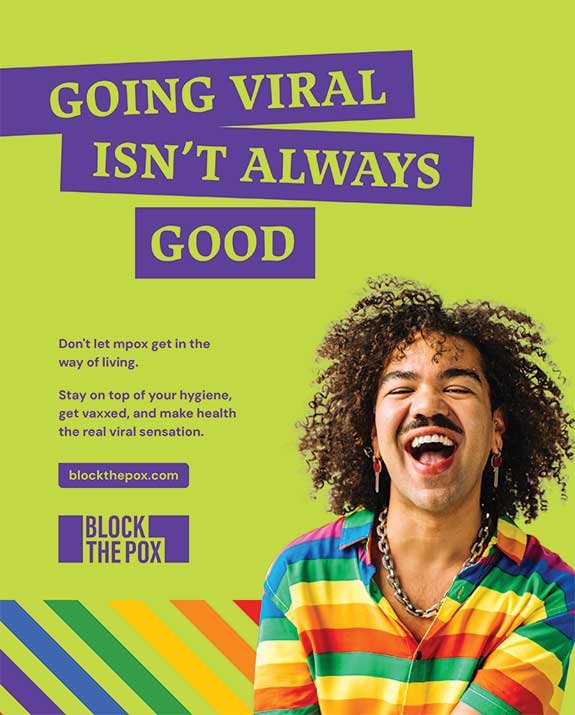Exclusively Inclusive.
By Karen Brain
October 11th is National Coming Out Day (NCOD) to support anyone “coming out of the closet.” Tell me more about this celebratory occasion, you say? Don’t mind if I do… (I know my history teachers’ minds will be blown right now if they read this.)
As a result of the Stonewall Revolt in 1969, organizers tried unsuccessfully for years thereafter to form a national march. In 1977, Harvey Milk was elected to public office as a San Francisco Board of Supervisors member. Harvey was the first openly gay man elected to public office in California. However, on November 27, 1978, he was shot and killed.
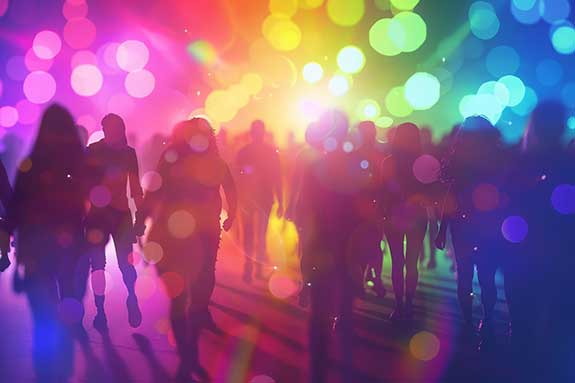
Harvey’s final campaign manager, Anne Kronenberg, wrote: “[Harvey] imagined a righteous world inside his head, and then he set about to create it for real, for all of us.” His killer’s lenient sentencing was on May 21, 1979, and as a result, started the White Night Riots and the national movement to march on Washington on October 14, 1979, known as the First National March for Lesbian and Gay Rights.
The second one, also known as “The Great March,” was on October 11, 1987. It has been said there were two events leading to this second march: the government’s lack of acknowledgment of the AIDS crisis and the Supreme Court’s ruling in Bowers v. Hardwick (1986) upholding the criminalization of sodomy between two consenting adults in the privacy of a home. This march was historically significant, and I encourage you to research it further. National Coming Out Day started on the first anniversary of the march, on October 11, 1988.
NCOD’s goal is to reduce stigma, raise awareness of the community and its civil rights movement, and provide a platform for people to share their coming-out stories. Its founders, Robert Eichberg and Jean O’Leary, believed living authentically and openly is essential. “Homophobia thrives in an atmosphere of silence and ignorance,” and “once people know they have loved ones who are lesbian or gay, they are far less likely to maintain homophobic or oppressive views.” Robert said, “Most people think they don’t know anyone gay or lesbian, and in fact, everybody does. It is imperative that we come out and let people know who we are and disabuse them of their fears and stereotypes.”
Harvey Milk said, “Every gay person must come out. As difficult as it is, you must tell your immediate family. You must tell your relatives. You must tell your friends if indeed they are your friends. You must tell the people you work with. You must tell the people in the stores you shop in. Once they realize that we are indeed their children, that we are indeed everywhere, every myth, every lie, every innuendo will be destroyed once and for all. And once you do, you will feel so much better.” When I heard Harvey’s statement, my first response was, “Wow, that seems like a very privileged thing to say.” Admittedly, that was a time when the privileged were the ones speaking at the podium, even more so than today.
I see where Harvey was trying to go with his statement, but we would be remiss not to acknowledge the very valid fears and concerns keeping so many in the closet. I agree with what Preston Mitchum wrote: “On National Coming Out Day, Don’t Disparage the Closet.” This refers to the fact that coming out may not always be safe for people in multiple marginalized communities. He suggests coming out can lead to hypervisibility, potentially leading to discrimination in the workplace, family exile, violence, and criminalization.
While learning about all of this, I realized the concept of Coming Out is yet another similarity between the two communities of LGBTQ+ and disabilities. As a person with a disability, based on my experiences, my opinion aligns with what Preston said. I would rephrase Harvey’s quote to say: “I encourage those living in the closet to come out if they feel safe to do so. As difficult as it is, if we come out to our immediate family, relatives, friends, if indeed they are our friends, coworkers, and people in the stores we shop in, the hope is maybe they’ll realize we are indeed their children, we are indeed everywhere, and every myth, every lie, every innuendo could be destroyed once and for all. And if you can come out and live more authentically, you may find you feel so much better.” To rephrase what Eichberg said to apply it to the disability community: “Ableism thrives in an atmosphere of silence and ignorance,” and “once people know they have loved ones who are disabled, they are far less likely to maintain ableistic or oppressive views. Most people think they don’t know anyone disabled, and in fact, everybody does. It is imperative that we come out if it is safe to do so and let people know who we are, how common disabilities are, and disabuse them of their fears and stereotypes.”
Like the LGBTQ+ community, some with “invisible disabilities” can hide in the closet because others wouldn’t know they’re disabled unless they say so. While hiding, they can learn what those around them really feel and think about “people like us.” A closeted person learning of their community’s negative stigma can push them further into that closet, making it feel impossible to come out. Or worse, it can push them to do whatever it takes to cover their authentic identity to ensure they never get out. It’s important to note that this also applies to other communities, as many communities include “invisible members.”
One double date night in high school, my friend Lisa, who had the same diagnosis as me but was not out about it, asked me to closet myself so her date wouldn’t suspect SHE was disabled. It’s not like I wore a sign with the big blue symbol on it. In fact, back then, my disability would be considered invisible. However, I did have a disabled parking placard and needed it. Lisa asked me to park “as far away from the blue spots as possible.” I replied, “Only if I can catch a ride on your back to the front door.” Now I have disabled plates on my vehicle, so there’s no question about it.
Don’t get me started on the “Good Samaritan, Parking Police Edition,” disabled and non-disabled alike, who decide based on their perceptions who should and should not be allowed to park in the Big Blue spots! Equally as frustrating is the “conveniently oblivious” team who knowingly allows and does nothing about non-disabled folks who park in the Big Blue because they’ll “just be five minutes.” Speaking of which, have you seen the fabulous (and totally legal) reactions people with disabilities have done to those illegally parked vehicles? I would love to hug whoever created them! But I digress…
I remember visiting Six Flags Magic Mountain amusement park as a teenager. I had to use my wheelchair because I cannot stand for long periods or walk long distances. At one of the rides, just before transferring from my wheelchair into the ride, a staff leaned in and whispered to me, “Could you make yourself look more disabled so the people in line don’t get mad?” I whispered back, “No.” As I was transferring, someone in line said, “Wow, I wish I had a wheelchair to cut the line.” I stood up, turned around, looked at the person who said it, and yelled back to them, “I’ll trade places with you. You live with this disease for your entire life, and I’ll stand in line for this ride.”
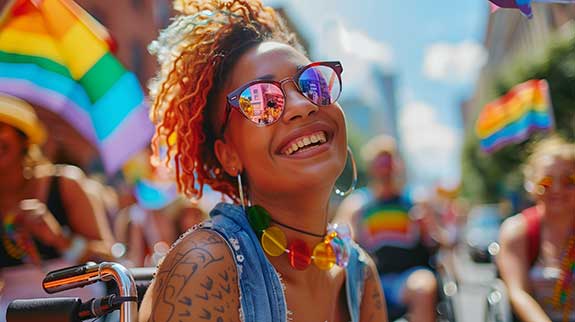
I am incredibly fortunate to have maintained employment since I was 16. However, employment has been the main reason I have put myself in the closet, and it is for safety reasons. While job-hunting after college, I decided to be out and proud, as if a disabled-blue spotlight was always shining on me, hoping to prove to my family that I did not have to be in the closet to gain employment. Unfortunately, I learned just how unwanted and excluded people with disabilities are in the workplace. Over time, that sad message became stronger, and I found myself hiding my true identity even more.
I recently read Matthew Perry’s memoir and was surprised to learn about his middle finger, yet not surprised to learn about his reaction to it. At age three, he lost the tip of his middle finger when another kid slammed a door on his hand. From then on, he hid his finger because he was “so ashamed.” When he was about nine, he wrote, “I forgot to put my hand in my pocket for the first time in six years [since the injury occurred]. I had never shown it; I was so ashamed.” Everything he said that happened after the accident is not surprising to me, feeling so ashamed and embarrassed, hiding his hand for years, fearing others might see he’s missing his fingertip, in fact, his reaction is too common. It reminded me of what happened to me when I was five years old. I wrote about it in this magazine’s June 2024 article: “I knew I was different from my peers, I knew I was disabled, and I knew it was not ok. I was five years old and thought it was better to be closeted or to cover up my disability than to be authentic. That’s not something I learned from any one person, place, or behavior. That is something I learned from living every day in a world that believes, with direct and indirect messaging and barriers everywhere, that people like me are inferior, wrong, and need to be fixed, and if I can hide it, I should. A message so prevalent and clear that a five-year-old absorbed it in just a few years.”
But when Perry forgot to hide his hand that day, an adult asked to see it. Perry wrote, “Embarrassed, I showed him.” Then the adult showed Perry his hand, and Perry continued, “Turns out he was missing the same bit of his middle finger on his right hand. From that day forth, I have never hidden my hand.” This is what I hope will happen as a result of more people being out and proud: at least others who feel they cannot come out may realize they’re not alone, maybe they’ll be able to find a safe space, and best case scenario, I hope they can come out and be proud, too.
We must realize more than one type of closet exists, and coming out of any closet is a complicated, lifelong process. While we should not ask others to hide their identity, we should never “out someone else”, even if we think it’s safe to do. We don’t know their circumstances for feeling the need to be closeted, and we don’t know how far or to whom our message about them might carry. For those who feel safe to come out, we must recognize this is still a privilege. At the very least, let’s provide a safe space and support for those who need it. If we can do more, we should. Share our stories, diminish stereotypes, increase awareness, break down barriers, and build up environments of inclusion. Let’s work together to create a society where we all feel safe to be our authentic selves. Happy National Coming Out Day!
This article was originally published in the 2024 PRIDE Celebration issue of Las Vegas PRIDE Magazine, and can be read in its original format here.
